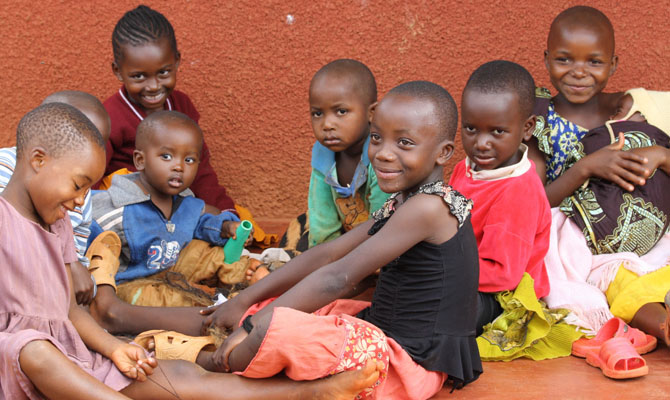Tanzania Our history
Doctors with Africa CUAMM has been working in Tanzania since 1968. During several years of intervention, the organisation had to fight against HIV/AIDS, malaria and malnutrition.
Today the project “Mothers and children first” aims to guarantee free access to health services for future mothers and their babies.

1968
The first physician from Doctors with Africa CUAMM arrives in Tanzania.
1977
A bilateral agreement is signed between Italy and Tanzania giving CUAMM a mandate for technical cooperation in the healthcare field.
1982
Important building work is carried out at Iringa, Dodoma, Kondoa, Mpwapwa and Tosamaganga hospitals.
President Julius Nyerere receives CUAMM management and staff at the presidential palace to officially thank the organization for its services.
1985
During the national conference of Tanzanian doctors at Tosamaganga, attended by the Minister of Health Stirling, a report referring for the first time to AIDS in Africa is presented by Doctors with Africa CUAMM based at Bukoba hospital.
1990
Inauguration of Iringa regional hospital, renovated by CUAMM with funding from the Italian Cooperation for Development Agency.
2000
Start of a malaria control and prevention programme in Iringa region, based on the network of peripheral health facilities.
2005
Launch of the “Four areas” project in the regions of Dar es Salaam, Iringa, Pwani and Morogoro to improve the quality and accessibility of social, healthcare and mother-child services.
2012
The “Mothers and Children First” project gets under way to guarantee access to safe child delivery and newborn care in 4 African countries (Angola, Ethiopia, Tanzania and Uganda).
2014
Doctors with Africa CUAMM’s work is focussed in the regions of Iringa, Njombe and Morogoro. The organization operates alongside the district and regional health authorities and strives to prevent, identify and treat severe and acute malnutrition in both villages and health facilities.
Support actions continue at the hospitals, health centres and district dispensaries of Iringa DC and Kilosa, to promote maternal, newborn and child health, and prevent HIV/AIDS and mother-to-child transmission.